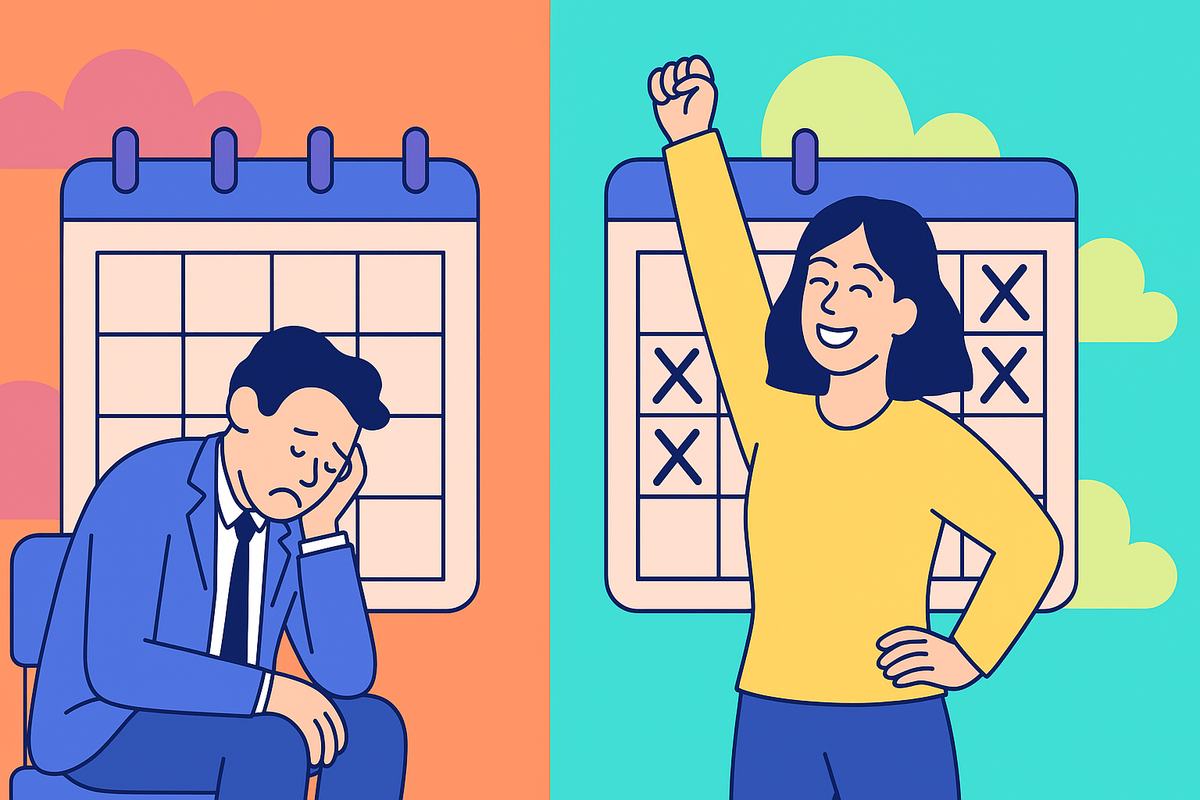Ownership Days: What Legal AI Is Really Changing

Legal AI tools promise speed, through faster drafting, fewer low-value tasks and a quicker path to “done.” and that’s largely happening. Tools are improving and time is being saved.
But the shift isn’t just in how fast the work gets done. It’s in who owns it and how often lawyers actually get to practise law in a way that builds confidence, judgement, and trust.
That’s where this idea of ownership days comes in.
While I’m focusing on legal work here, the same pressures and patterns show up across engineering, legal ops, and knowledge roles too. The common thread is this: when tools reshape the task, they often reshape who owns the outcome.
What are ownership days?
It’s not a formal metric. Just a useful way of describing something most people already feel.
The idea was partly inspired by a concept I heard on Living Planet, talking about outside days, which tracks how many days a year are suitable for being outdoors in reasonable comfort. Not too hot, not too cold, not so extreme that you retreat inside. It’s a human-centred way to understand climate change.
Which made me made me think: in law, what are the equivalent days we quietly lose when we introduce new tools?
Ownership days are the ones where lawyers actually practise law. Where they carry responsibility, exercise judgement, and grow. As with the climate, the changes aren’t always dramatic. They’re subtle, but when those days start to disappear, you feel it, in how people work, learn, and stay engaged.
AI doesn’t just remove work. It redistributes ownership.
A junior lawyer who used to build from first principles now tweaks AI suggestions they didn’t create and don’t fully trust. If the partner disagrees, it’s a little unclear who’s responsible.
That associate who used to shape the flow of advice based on client context now starts with an AI summary that frames the issue before they’ve had a chance to think it through themselves.
That senior who used to anchor negotiations now drops into a playbook-driven workflow where many of the decisions have already been made, often by someone outside the room.
Everyone’s still working, still billing and still delivering, but the space to think, shape, and lead is getting smaller.
Not all ownership needs saving
I’m not arguing that everything should stay manual.
We don’t need lawyers spending time formatting documents or tracking down a precedent. If a model handles that, great. That’s not a loss.
It easy to see how easily we could go from automating admin to quietly erasing the part of the task that actually builds legal instinct.
When the AI drafts the clause, surfaces the “key” risks, and frames the first recommendation, what’s left might still be technically sound, but it’s no longer something the lawyer really owns. Over time, that changes how they learn and how they lead.
This isn’t just about training
It’s easy to frame this as a junior lawyer problem, however the impact shows up at every level.
- If you’re not drafting, you don’t learn how to express judgement clearly
- If you’re not thinking it through from first principles, you don’t spot when something doesn’t feel right
- If your role becomes editing instead of deciding, your confidence in taking responsibility can fade
These are slow changes, but they matter.
Now all these aren’t limited to legal work. I’ve seen the same dynamic in engineering, where teams move from designing systems to integrating ones they didn’t choose and in ops, where ownership of process quietly gives way to managing exceptions around inflexible tools.
Ask a better question
Most conversations about AI focus on efficiency and that’s fine because time matters.
When you’re deciding whether to roll out a tool, or how to evaluate its impact, I think this is the better question:
Is this increasing or reducing ownership days across the legal team?
Not just time saved. Not just output quality.
- Who’s still making the call?
- Who’s building confidence in their own judgement?
- Who’s growing?
That’s the bit that’s harder to measure and easier to lose.
There’s room to design for growth, not just speed
This isn’t a call to slow everything down. I’m not suggesting we turn every task into a training exercise, but I do think there’s space to build tools that don’t just give the answer, but help lawyers learn to get there themselves.
Let's take legal research.
If the tool always produces the answer instantly, the lawyer never builds recall. They learn to trust the tool, not their instincts.
But... if the tool pauses, even briefly to ask “What would you check first?” or offers a challenge like “Can you find the answer before I show you?”, that’s a different experience.
Not every moment is teachable. In high-pressure situations, you would skip straight to the output, but where there’s space, that small pause could help a junior spot patterns, test their thinking, and grow faster than they would by just reading polished summaries.
I don’t think we talk enough about this, about the role AI tools could play in deepening ownership, not just replacing
You don’t build confident lawyers/engineers/ops by showing them answers. You build them by giving them space to get it slightly wrong and a reason to get better.
That’s what ownership days offer.
No while I understand the push for speed, I’ve found that what keeps good people engaged isn’t just efficiency. It’s knowing that the work is still theirs to own.
Track that. Talk about it. Protect it where you can.
Because once those days are gone, they’ll be very hard to get back.